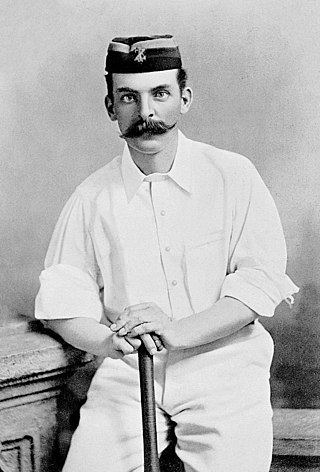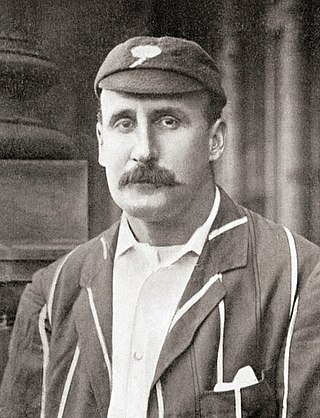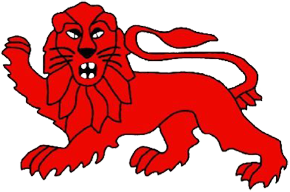Related Research Articles

Hughes Hall is a constituent college of the University of Cambridge in England. It is the oldest of the University of Cambridge's postgraduate colleges. The college also admits undergraduates, though undergraduates admitted by the college must be aged 21 or over. There is no age requirement for postgraduate students. The majority of Hughes Hall students are postgraduate, although nearly one-fifth of the student population comprises individuals aged 21 and above who are studying undergraduate degree courses at the university.

Christopher Dennis Alexander Martin-Jenkins, MBE, also known as CMJ, was a British cricket journalist and a President of MCC. He was also the longest serving commentator for Test Match Special (TMS) on BBC Radio, from 1973 until diagnosed with terminal cancer in March 2012.

John Michael Brearley is a retired English first-class cricketer who captained Cambridge University, Middlesex, and England. He was the captain of the English squad which finished as runners-up at the 1979 Cricket World Cup.

Allan Gibson Steel was an English amateur cricketer who played for Lancashire County Cricket Club from 1877 to 1893, and in Test cricket for England from 1880 to 1888. He was born in West Derby, Liverpool, and died in Paddington, Middlesex.

Martin Bladen Hawke, 7th Baron Hawke, generally known as Lord Hawke, was an English amateur cricketer active from 1881 to 1911 who played for Yorkshire and England. He was born in Willingham by Stow, near Gainsborough, Lincolnshire, and died in Edinburgh. He appeared in 633 first-class matches, including five Test matches, as a righthanded batsman, scoring 16,749 runs with a highest score of 166 and held 209 catches. He scored 13 centuries and 69 half-centuries.

Oxford University Cricket Club (OUCC), which represents the University of Oxford, had held first-class status since 1827 when it made its debut in the inaugural University Match between OUCC and Cambridge University Cricket Club (CUCC). Following the 2021 University Match, OUCC lost its first-class status. It was classified as a List A team in 1973 only. Home fixtures are played at the University Parks slightly northeast of Oxford city centre.

Cambridge University Cricket Club, established in 1820, is the representative cricket club for students of the University of Cambridge. Depending on the circumstances of each individual match, the club has always been recognised as holding first-class status. The university played List A cricket in 1972 and 1974 only. It has not played top-level Twenty20 cricket.

Cambridgeshire County Cricket Club is one of twenty minor county clubs within the domestic cricket structure of England and Wales. It represents the historic county of Cambridgeshire including the Isle of Ely.

Inter-county cricket matches have been played since the early 18th century, involving teams that are representative of the historic counties of England and Wales. Since the late 19th century, there have been two county championship competitions played at different levels: the County Championship, a first-class competition which involves eighteen first-class county clubs among which seventeen are English and one is from Wales; and the National Counties Championship, which involves nineteen English county clubs and one club that represents several Welsh counties.

Fenner's is Cambridge University Cricket Club's ground.

Durham University Centre of Cricketing Excellence, known as Durham MCC University from 2010 to 2020, is a cricket coaching centre based at Durham University in Durham, County Durham, England, and the name under which the Durham University Cricket Club (DUCC) first team plays.

Free Foresters Cricket Club is an English amateur cricket club, established in 1856 for players from the Midland counties of England. It is a 'wandering' club, having no home ground.
The University Match in a cricketing context is generally understood to refer to the annual fixture between Oxford University Cricket Club and Cambridge University Cricket Club.
The British Universities cricket team was a cricket team whose players were drawn from university students studying in Great Britain. The team played under the title of Combined Universities until 1995. The team played List A cricket from 1975 to 1998 and first-class cricket from 1993 to 2006.
Seth Somers Park is a cricket ground in Halesowen, West Midlands. It is home to Halesowen Cricket Club, whose 1st XI play in the Birmingham and District Premier League. The park was used for first-class cricket by Worcestershire on two occasions in the 1960s, at which time Halesowen lay in Worcestershire. In 1964 they beat Cambridge University by ten wickets, and five years later they beat the same opposition by an identical margin. Two games in the 1986 ICC Trophy were played at Seth Somers Park: Canada beat Hong Kong by four wickets, while Denmark beat Bermuda by six wickets.

Cricket is one of the most popular sports in England, and has been played since the 16th century. Marylebone Cricket Club, based at Lord's, developed the modern rules of play and conduct. The sport is administered by the England and Wales Cricket Board and represented at an international level by the England men's team and England women's team. At a domestic level, teams are organised by county, competing in tournaments such as the County Championship, Royal London One-Day Cup, T20 Blast and the Women's Twenty20 Cup. Recent developments include the introduction of a regional structure for women's cricket and the establishment of The Hundred for both men's and women's cricket. Recreational matches are organised on a regional basis, with the top level being the ECB Premier Leagues.

Edward Lyttelton was an English schoolmaster, cleric and sportsman from the Lyttelton family who was headmaster of Eton College from 1905 to 1916. During his early years he played first-class cricket for Cambridge University and Middlesex.
The Magdalen Ground was a cricket ground in Oxford, England. The ground was owned by the University of Oxford and used by Magdalen College, a constituent college of the University of Oxford. Originally forming the northern point of Cowley Marsh, the ground was initially associated with the Magdalen College School, whose students played cricket there. By 1829, the Oxford University Cricket Club had been given a part of the marsh where the College School played cricket. In 1851, it was purchased at auction by the University of Oxford and leased to the University Cricket Club. The ground operated as a first-class cricket venue from 1829 to 1880, hosting 69 first-class matches. The University Cricket Club left the ground following the 1880 season to play at the University Parks from 1881.

Bullingdon Green was a cricket ground south of Oxford, England. It was associated with the Bullingdon Club and was an important site in the early history of cricket in Oxford. The ground operated as a first-class cricket venue in 1843, hosting two first-class matches. It was subsequently built on in 1876 with the Cowley Barracks.
References
- ↑ "Martin Breddy". ESPN Cricinfo. Retrieved 10 April 2017.